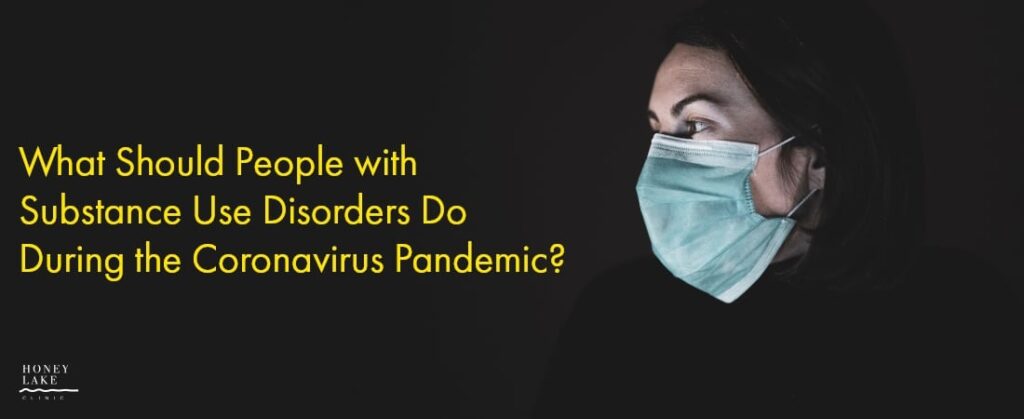What Should People with Substance Use Disorders Do During the Coronavirus Pandemic?
A pandemic is stressful.
The stress associated with the evolving social disruptions and health-related threats caused by the coronavirus (COVID-19) pandemic can be particularly challenging for individuals with substance use disorders or who are battling addiction.
During these uncertain times, those who misuse or abuse alcohol and/or other drugs are particularly vulnerable.
The stress from social isolation and other COVID-19 related life changes can lead to or worsen substance use and misuse.
There are also health risks resulting from chronic alcohol/drug use as it weakens your immune system and puts stress on your body’s cardiovascular and respiratory systems.
Increased stress can lead to increases in alcohol and substance use. If you or someone you love is starting to abuse alcohol or other substances during the pandemic, we can help. (855) 222-4756.
What’s really happening with your mind and body?
Alcohol
Alcohol consumption weakens your immune system and can increase your susceptibility to certain infectious diseases like the coronavirus. For individuals who are dependent on alcohol, restricted access could lead to symptoms of withdraw.
Alcohol withdraw can be fatal if not carefully managed.
Cocaine
Smoking or snorting cocaine causes changes in your brain that result in constriction within the vascular system (arteries, veins, capillaries), and can lead to severe damage of your lungs and respiratory system.
Smoking cocaine can lead to many complications within your lungs such as swelling, hemorrhage, pulmonary edema, bronchitis, asthma, and emphysema.
Smoking and Vaping
Studies have shown that when you smoke (tobacco or marijuana), you are at much greater risk for health consequences such as cancer and lung damage.
In addition to smoking, emerging evidence suggests that vaping causes damage to lung cells and inflammation to lung tissue. This reduces the ability for your lungs to respond properly to infection.
Because COVID-19 attacks the lungs, smoking and vaping may pose extremely serious risks to those who contract COVID-19.
Because it attacks the lungs, COVID-19 could be an especially serious threat to those who smoke tobacco or marijuana or who vape.
Opioids and Methamphetamines
When opioids are taken at high doses, they act on your brainstem to slow breathing, which leads to decreased oxygen in your blood (hypoxemia).
This puts opioid users at risk of an overdose and is why opioids are particularly dangerous and often fatal.
Methamphetamine use is particularly dangerous because it constricts the blood vessels, which can lead to pulmonary damage and hypertension.
People with opioid use disorder (OUD) and methamphetamine use disorder may also be especially vulnerable due to those drugs’ effects on respiratory and pulmonary health.
Addiction and Stress
Many people with addiction also battle depression, anxiety, and have other co-existing mental health concerns.
During COVID-19, the constant flow of stressful news may lead to increased feelings of worry, anxiety, and stress. Although turning to alcohol and/or drugs may temporarily help you feel better, they cause changes in your brain that will make you feel worse.
It is imperative that you seek out healthy activities that will help alleviate stress/anxiety/depression.
Take a break from the news and social media. Watch a comedy, read a book, or call a friend.
Be Prepared
Substance abuse and addiction thrive on secrecy and catch people off-guard.
They can progress quickly, especially during situations of social isolation.
If you’re dealing with strong cravings or relapse, contact your doctor, therapist or addiction counselor immediately and, if possible, include your family or a close friend.
Ask about medications to treat your symptoms, a plan for refills, and also explore options for urgent or emergency services, as well as the risks of going to the local emergency department.
Many doctors, therapists and counselors are offering virtual visits via web chat or phone.
For your next appointment, check your provider’s website to find out if the potential for virtual visits is in place.
Where to Turn?
If you are in treatment for substance use, maintain contact with your provider. If you are not in treatment, consider reaching out—
